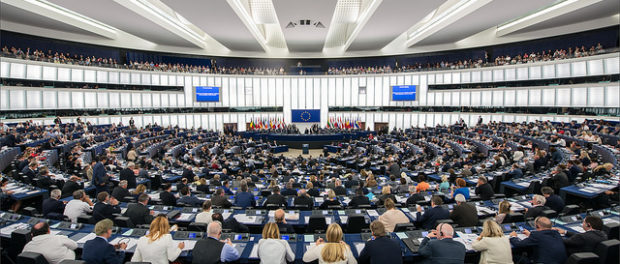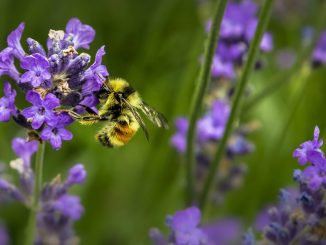Following a four year campaign by NGOs, progressive farming organisations and some very committed MEPs and their advisors, pesticides will be prohibited from ecological focus areas (EFAs). On Wednesday, the European Parliament agreed with the European Commission that agricultural land designated for the preservation of biodiversity must not be treated with pesticides.

( creativecommons.org/licenses/by-nc-nd/4.0/)
Ecological Focus Areas are part of the so-called “greening” measures introduced in the last CAP reform. They foresee that 5% of the arable land of farms above 15 hectares must be primarily devoted to increasing biodiversity on farmland areas.
A full plenary vote was held in the European Parliament, where opponents of the Commission’s position failed to secure the required number of votes. A majority of 376 MEPs was needed to continue to allow the use of pesticides in EFAs. However only 363 voted this way, which is 13 short of a majority. So while only 267 voted in favor of banning pesticides in EFAs, the fact that a majority was not reached is key. 43 MEPs abstained.
Background article to recent pesticides and EFA vote including myth busting section
Detailed longer background article on history of pesticides and EFAs over four years
The Commission had for some time proposed banning pesticides from EFAs as one of a package of CAP simplification measures. On 30th May the European Parliament Committee on Agriculture and Rural Development – COMAGRI – had adopted a resolution to veto this Commission’s proposal to ban pesticides in those areas. However MEPs sitting in plenary yesterday failed to gather the required majority to veto the proposal by a 13 votes only.
Typically, the European Parliament votes with recommendations of the Committees. However, this was always going to be both a close and contentious vote.
It is understood that the time has passed for the Council to input, so the ban is likely to be formalised.
In the formal language of the EU legislative process, supporting what was called the Commission Delegated Act proposal meant supporting the Commission’s plan to prohibit pesticides in EFAs. This was also voting against the COMAGRI objection.
Reacting to the vote, NGOs choose to focus on what this might mean for a deeper CAP reform – sources consider this proposal to ban pesticides in EFAs a “testing of the waters” by Commissioner Phil Hogan for more significant ecological changes to CAP.
IFOAM EU said: The organic food and farming movement (IFOAM EU) welcomes today’s European Parliament backing of the European Commission’s proposal to ban pesticides on Ecological Focus Areas (EFAs). However, we warn that MEPs and the CAP post-2020 must aim higher at protecting the environment from harmful agriculture practices. The MEPs’ decision sends a political signal that agrochemicals are not compatible with agroecological farming practices and should not be allowed on EFAs. Still a lot needs to be done to implement the principle of public money for public goods under the Common Agricultural Policy (CAP)
Greenpeace EU agriculture policy director Marco Contiero echoed this: “It is high time that the use of pesticides is banned on agricultural lands that have been dedicated to biodiversity protection. It would have been outrageous not to. The EU is about to enter into an indispensable reform of its agriculture policy, so today’s decision will not be the last in the battle for ecologically sound farming that sustains people, animals and the planet.”
Moreover, pressure is coming on the Agriculture Commissioner from other sources. Politico reported yesterday that “European Parliament President Antonio Tajani is drawing up proposals for a radical overhaul of the EU budget, which would slash the lavish sums devoted to its prime beneficiaries: farmers. Tajani’s plan, which also involves switching the budget cycle from seven years to five, will seek to refocus Europe’s budgetary priorities away from big landowners toward security, immigration, youth unemployment and climate change.”
With a CAP more in line with the idea of providing public goods for public money, due to the banning of pesticides in EFAs, Commissioner Hogan’s position is stronger.




